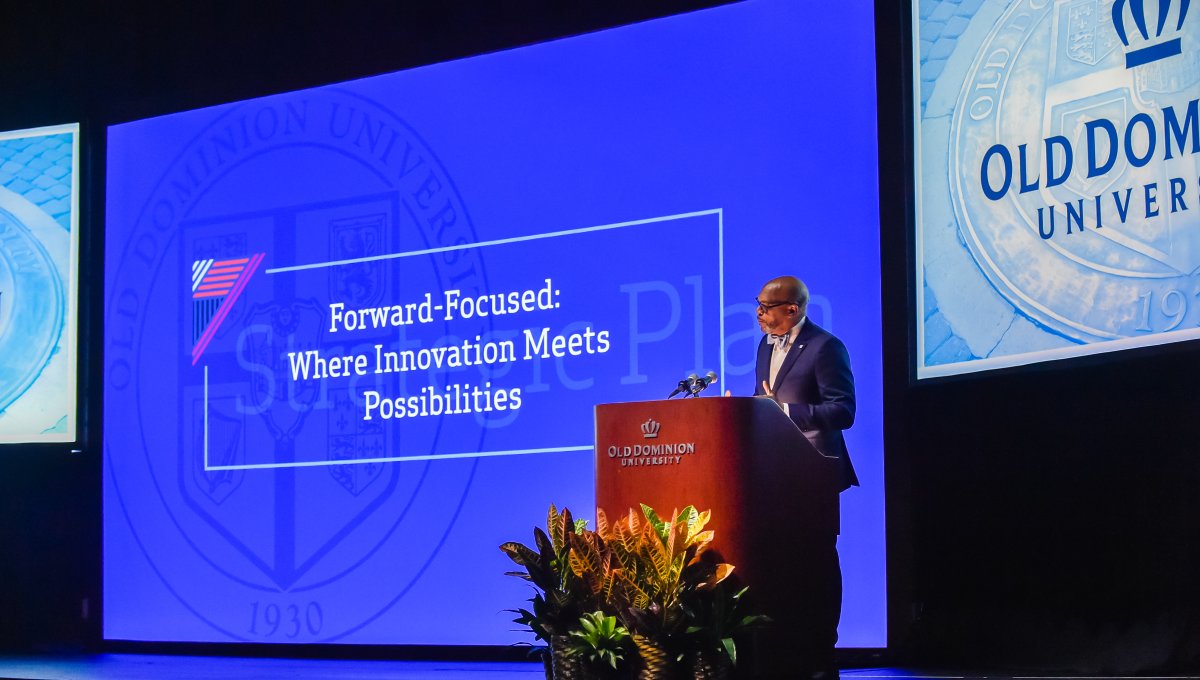In a recent open forum with students, Old Dominion University’s President Brian Hemphill reaffirmed the school’s commitment to moving ahead with the Forward-Focused Digital Transformation Initiative (FFDTI) despite significant backlash from students and faculty, who questioned the lack of transparency and voiced concerns that the changes could strain workloads and affect class quality.
FFDTI aims to make major changes to how ODU teaches, learns and conducts research. According to Hemphill, the move was made in response to the pressures of declining enrollment and shifts in higher education trends. University leaders say the initiative intends to keep ODU competitive, especially for online and nontraditional students.
One of the biggest changes will be the transition to 8-week asynchronous courses for the majority of online undergraduate and master’s programs, replacing the traditional 16-week format. According to university leadership, these accelerated classes are designed to give students more flexibility and help them complete courses efficiently.
The plan will also call for major technology changes across classrooms, with more than 180 rooms set to receive new augmented and virtual reality tools, along with other digital learning enhancements aimed to improve student motivation and learning, according to the provost’s letter.
In addition, courses with historically high DFW rates, meaning a high number of students earning D, F or withdrawing, will be reviewed and redesigned. Courses with over 30% DFW rate will be flagged for review by deans, who will then work with faculty to identify ways to improve outcomes. Faculty evaluations include annual portfolio reviews for pre-tenured instructors and reviews every five years for tenured faculty.
Another major component of the initiative involves integrating artificial intelligence throughout ODU’s academic, research, and administrative systems, which university officials say will place the institution among a small group of universities leading in this area.
Nevertheless, while many people on campus question the quick rollout of the initiative, university leadership insists these changes are in the institution’s best interest and that they’re here to stay.
FFDTI is expected to fully launch in Fall 2026, with pilot courses starting the prior summer. A follow-up article featuring responses and perspectives from students and faculty as the university continues its rollout is to be expected.








